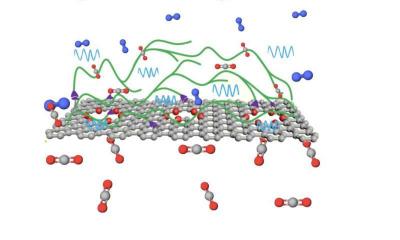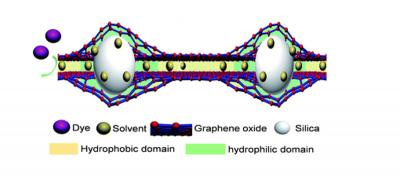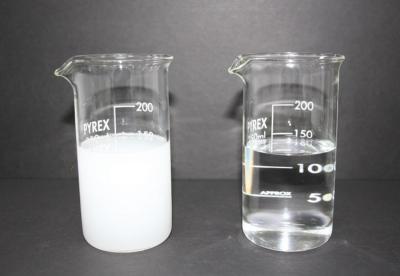by MBF Admin | Aug 6, 2019 | 2D materials, Aerospace, AGM, Angstron Materials, Audio, Defects, Development, Graphene DNA Sequencing, Investment, Medicine, Membranes, Products, Research
Researchers at the University of Illinois examined how tiny defects in graphene membranes, formed during fabrication, could be used to improve molecule transport. They found that the defects make a big difference in how molecules move along a membrane surface. Instead...

by MBF Admin | Jul 28, 2019 | 2D materials, Aerospace, AGM, Angstron Materials, Audio, Development, Graphene applications, Investment, Membranes, Products, Research, Technical / Research
A way to cut CO2 levels, produced from burning fossil fuels and released into the atmosphere, is through carbon capture, a chemical technique that removes CO2 from emissions (“postcombustion”). The captured CO2 can then be recycled or stored in gas or...

by MBF Admin | May 13, 2019 | 2D materials, Aerospace, AGM, Angstron Materials, Audio, Development, Graphene applications, Graphene Oxide, Investment, Medicine, Membranes, Products, Research, Technical / Research
KAUST researchers have tailored the structure of graphene-oxide layers to mimic the shape of biological channels, creating ultra-thin membranes to rapidly separate chemical mixtures. This may have the potential to inspire new materials to clean up chemical and...
by MBF Admin | Mar 18, 2019 | 2D materials, Aerospace, AGM, Angstron Materials, Audio, Development, Graphene Oxide, Investment, Membranes, Products, Research
Researchers from the Chinese Tsinghua University and CAS demonstrated a coupled photon-electron-ion transport phenomenon through graphene oxide membranes. Using the energy of light, cations are able to move thermodynamically uphill over a broad range of...

by MBF Admin | Feb 20, 2019 | 2D materials, Aerospace, AGM, Angstron Materials, Audio, Development, Graphene applications, Graphene coating, Haydale, Investment, Membranes, Products, Research, Technical / Research
The Centre for Process Innovation (CPI) has collaborated on a project to advance the development of a low-cost, self-cleaning coating technology for industrial filter membranes.The Smart Filter project used graphene and its derivatives to create a coated filter...
by MBF Admin | Jul 3, 2018 | Development, Graphene applications, Graphene DNA Sequencing, Investment, Medicine, Membranes, Products, Research, Technical / Research
Researchers at the University of Illinois at Urbana-Champaign have developed new theories regarding the compression of water under a high-gradient electric field. They found that a high electric field applied to a tiny hole in a graphene membrane would compress the...



